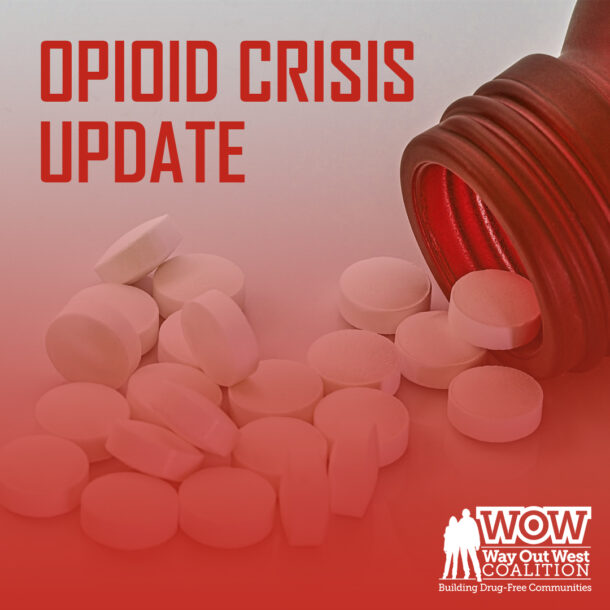Facts You Need to Know
Physical pain has a tremendous impact on the lives of millions of Americans, many of whom have been prescribed opioids to relieve their suffering. However, we now know these pain relievers are highly addictive; so much so that we now find ourselves in an “opioid crisis.” Reducing youth access to these prescription medications is important because 60% of teens who report abuse of prescription medicine are getting it from home or friends. Here are some facts and things you can do to make sure you and your family are protected.
Facts:

- Rx painkillers and heroin are both opioids
- Painkiller addiction often starts by misusing or sharing a legitimate prescription following an injury, surgery or dental procedure
- Anyone using Rx painkillers over an extended period of time (two or three months) will become addicted even when using a low dosage
- 80% of heroin users started with prescription drugs
- Opioid overdoses increased 74% between 2012-2016
- In the 18 months prior to January 2019, Arizona experienced:
- 2,535 Suspected Opioid Deaths
- 16,620 Suspected Opioid Overdoses
- 9,069 Administrations of Naloxone
What You Can Do
Monitor Meds & Don’t Share
How aware are you of the quantities of medications that are currently in your home? Think about this: Would you know if some of your pills were missing? From this day forward, make sure you can honestly answer yes. If you find you need to refill your medicine more often than expected that could indicate a problem.
If your teen has been prescribed a medicine, be sure you control the medicine, and monitor dosages and refills. Be especially vigilant with medicines that are known to be addictive and commonly abused by teens, such as opioids, benzodiazepines and stimulants.
Secure All Meds = Lock Them Up
If you’ve got kids or grandkids, treat Rx medications just like you treated the cabinet under the sink when you had toddlers. Lock them up. Take prescription medicine out of the medicine cabinet and secure them in a place only you know about. If possible, keep all medicines, both prescription and over-the-counter, in a safe place, such as a locked cabinet your teen cannot access. Spread the word to other households that teens may have access to, and encourage them to secure their prescriptions as well.
Dispose of Properly
Safely disposing of expired or unused medicine is a critical step in helping to protect your teens, your family and home, and decrease the opportunity for your teens or their friends to abuse your medicine. Find disposal locations and hours in Buckeye visit: http://wowcoalition.org/resources

